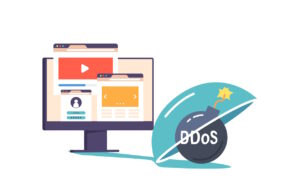Kaspersky has released its latest report on the financial cyber threat landscape for 2022, which highlights significant changes in business. According to the survey, there has been a 40% increase in crypto phishing attacks over the last year. This demonstrates a growing tendency of cybercriminals to target digital assets, such as Bitcoin, and steal the digital currency of investors and users.
Hackers are now focusing on new fields, such as the cryptocurrency market, as compared to more conventional financial vulnerabilities like banking ransomware for PCs and mobile devices.
Russian cybersecurity company Kaspersky is the creator of the well-known anti-virus software. The primary goal of the company is to offer products and services that will protect internet users in their homes and places of work from cyberattacks.
Cybercriminals use several techniques, such as creating fake bitcoin trading websites and sending phishing emails and texts, to execute cyberattacks. These tricks are used to trick users into disclosing their private keys and other sensitive data.
In comparison to the previous year, 2022 saw a 40% increase in crypto phishing attacks, according to Kaspersky report. Compared to 3,596,437 in 2021, the business found 5,040,520 cases of crypto-phishing attacks. At the time, the company cannot predict if the trend will continue to rise in 2023.
These attacks are getting more complicated and more difficult to detect, according to Kaspersky analysts. Some hackers use social engineering techniques to access consumers’ wallets and steal their money.
Cybercriminals are Using Crypto Phishing:
Most cryptocurrency frauds in the UK use well-known strategies like phishing websites or giveaway scams. However, attackers never stop coming up with new tricks. The latest scam that uses PDFs to convince customers they must immediately take bitcoin from frozen accounts was uncovered by Kaspersky.
The File contains a link that leads to a fake mining website where visitors can submit their personal information and pay a fee using cryptocurrency. Scammers want to trick users into giving up sensitive information so that they can take their money.

Trezor, a maker of hardware wallets for digital assets, revealed certain suspicious activity found in its system through twitter on February 28, 2023. The company also warned users to be careful of fake Trezor websites that ask for their recovery password.
Investors in Arbitrum were vulnerable to a similar scam in March 2023. On March 25, CertiK Alert tweeted that the attacker had taken over the company’s official Discord server and was using it to spread misleading information and links.
Mitigation Against Phishing Attacks in Cryptocurrency
Phishing attacks are a common type of cybercrime in the cryptosphere, and they can lead to major financial losses for people who are victims. Therefore, it is important for individuals who deal in digital asset transactions to always stay alert and careful.
It’s important to be cautious if you receive spam emails, texts, or phone calls that ask for personal information or nudge you to click on links. To reduce the chance of becoming a victim of cybercriminals, avoid clicking on links or downloading files from unknown sources. You should never provide your private keys, passwords, or any other sensitive information to anybody unless you are 100% sure of its authenticity.
Maintaining up-to-date knowledge on the latest phishing strategies and techniques is important if you want to prevent being a victim of phishing scams. Also, you should be aware of how phishing attacks work and be able to recognise the typical red flags.
Inform the authorised decentralised finance (DeFi) platform and law enforcement authorities if you think you’ve been the victim of a phishing attack or have received suspicious emails. It is essential to report these acts since doing so can save others from suffering similar attacks.
Phishing attacks are on the rise, and it is important to protect your organisation. One effective way to do this is by increasing user awareness about these types of attacks. Phishing Tackle is a great resource that can help you in this regard. They offer a free 14-day trial to help train your users to recognise and avoid phishing attacks.
Although technology can be helpful, it cannot spot 100% of phishing emails. Therefore, user education is important to minimising the impact of any successful attacks. Consulting with Phishing Tackle can provide valuable insights and tools to help you strengthen your defences against phishing attacks.









